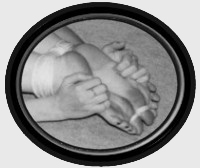Strelnikov
4th Level Red Feather
- Joined
- May 7, 2001
- Messages
- 1,820
- Points
- 0
This article appeared in the Washington Post on October 30, 2002. Comments, anyone?
Strelnikov
********************************
THE “MADE IN BERLIN” GENERATION
Germany's rift with the United States goes deeper that American unilateralism and disagreement over Iraq policy.
By Henry A. Kissinger
GERMAN-American relations have been thrown into crisis by the way Germany's election campaign was conducted by its governing party. Other allies have had reservations about American policy on Iraq. None has chosen the road of confrontation.
The cause for this sudden deterioration is complex. Some ascribe the sudden and quite unexpected shift of German policy to electoral opportunism. But Chancellor Gerhard Schroeder's motives are not the issue.
For the anti-American campaign clearly appealed to a constituency large enough to transform Schroeder's expected defeat into victory. Hence a kind of anti-Americanism may have become a permanent feature of German politics. This is especially painful for those of us who actively nurtured what we consider one of the proudest achievements of American postwar foreign policy: the return of Germany to the community of nations as an equal, respected and indispensable member.
It was a journey marked by the Berlin airlift; the Marshall Plan; support for Germany's membership in Nato and the European Community; close co-operation in two further Berlin crises; American support for the German reconciliation with the East ; American leadership in negotiating a final agreement on access to Berlin; and, finally, American unconditional support for German unification despite the hesitations of other allies.
Germany's contribution was the courageous decision to postpone unification, when Stalin offered it in return for Germany's rejection of Nato, and its decision instead to tie its future to European unity and Atlantic partnership. This forging of a common destiny did not prevent occasional disagreements regarding specific policies.
But up to now, they were based on differing interpretations of, and responses to, unchallenged common interests. This explains the shock when suddenly an election issue was made of American policy on Iraq. German participation in a military conflict with Iraq was rejected and the use of German bases proscribed, even if backed by a UN vote and whatever the other members of the European Union or NATO might decide.
This dramatic refusal in the name of a so-called "German way" was proclaimed despite the fact no request for a German military contribution had been made or was likely to be made. The policy was accompanied by sharp criticism of a speech by Vice President Dick Cheney and of the alleged unilateral tactics of President George W Bush.
In this atmosphere, the word "American" occasionally turned into an epithet, even when applied to American domestic economic policies. The comparison of Bush's domestic methods to those of Hitler by a cabinet minister was an aberration, but it grew out of a mood that had been deliberately fostered. The tone-deafness vis-a-vis American sensitivities continued after the election when the newly designated state secretary in the German Foreign Ministry, Klaus Scharioth, described the new American strategic doctrine released by the White House as reminiscent of the Brezhnev Doctrine.
The impact of this campaign on the German electorate is shown by the fact that Schroeder's opposition, the historically pro-American CDU, did not dare to refute the attack in substance. Though it warned against basing a campaign on offending Germany's most powerful ally, it went reluctantly along with the refusal of military co-operation and of the use of Nato military bases in Germany. This suggests that the causes of the existing rift go deeper than electoral opportunism, American unilateralism and disagreement over Iraq policy. The end of the Cold War has removed the fear of a common danger. For four decades, German governments treated the American alliance as the key to German security and to the political legitimacy of the new Germany. Neither condition obtains to a similar extent today. The generation that created the German-American relationship is passing from the scene. On the US side, its members came from the Eastern Establishment, leavened by some emigres.
Both groups had formed personal relationships that enabled them to understand the spiritual crisis through which Germany moved, and they believed in the great positive potential of the German people. The postwar German generation saw its primary goal in establishing a reputation for reliability and constancy within Europe and the Atlantic Alliance.
The new leadership groups that have emerged on both sides of the Atlantic have not shared in the experience of the war and of postwar reconstruction. They are either not preoccupied with foreign dangers or, to the extent that they are, believe themselves capable of dealing with them unilaterally. The Atlantic Alliance, once the centrepiece of policymaking, now concentrates on expanding its membership - even de facto including the erstwhile adversary - and thus on expanding its reach without redefining its purpose. In the United States, the political centre of gravity has shifted to the centre of the country, a region whose leaders have fewer personal connections with Europe and less experience with its challenges than their predecessors, who created the postwar structure.
And they are in power in a United States that enjoys unquestionable military supremacy and thus has modified its approach to alliances. As the victim of 9/11 and as the dominant military power, America feels itself responsible for global security. But in Europe, the focus is on domestic politics rather than on international affairs.
This emphasis on bureaucratic, constitutional and legalistic arrangements contrasts with a United States that emphasises its exceptional character and the applicability of its institutions to the rest of the world. Germany is challenged by these realities in an especially acute fashion. It achieved national unity later than any European country and acquired its present dimensions and structure only a little more than 10 years ago. It therefore has less of a tradition of global foreign policy than the other major countries of western Europe.
Its domestic problems are more severe. It is governed by a coalition whose leaders had their formative experience in the protest against American policy on Vietnam, even participating in some of its more violent phases. In the early postwar period, Germany's governing party, the SPD, advocated unity over Nato and overthrew one of its chancellors, Helmut Schmidt, because he was willing to place Nato missiles on German soil. And its coalition partner, the Greens, opposed all military ties to the West until it entered office.
To be sure, far-sighted leadership in both coalition parties enabled them to govern with programs sustaining Atlantic ties, if not with passion at least on the basis of realistic assessment. But it did leave a residue on the left wing of each party, which could be easily mobilised by appeals to traditional anti -Americanism - especially when the government made these criticisms.
This situation is compounded by the special psychological condition of the eastern part of Germany. East Germany was liberated as much by Western pressure as the actions of its own internal resistance. And its economic reconstruction has taken place under West German aegis.
East Germany went from Nazism to communism without any experience of democracy. Its population tends to view itself as victims of history and, to some extent, of Western globalism. It is not familiar with Western strategic or geopolitical views and seeks its security in an abstract moralism veering toward pacifism, which enables it to feel ethically superior to its powerful ally.
Thus, at the end of the German election campaign, the margin of victory may well have been supplied by a combination of pacifism, left and right nationalism, and an evocation of a specifically German way reminiscent of Wilhelmine Germany.
For if Germany can affront the United States, reject UN views and act without consultations with the other nations of Europe in the name of a "German way" - "made in Berlin", in the Chancellor's words - self-righteous isolation beckons for Germany and a return to pre-First World War conditions for Europe.
Foreign policy expert Karsten Voigt, in charge of American relations in Germany's foreign office, summed up this new attitude: "We do what makes sense to us; we do nothing with whose substance we disagree." But foreign policy rarely permits such absolute distinctions. No country should be asked to act against its interests or its notions of common sense. But neither should it conduct a foreign policy that makes no allowance for the views of other societies - and especially of close allies - particularly when it is located in the centre of the Continent.
Thus the new self-proclaimed German way is a challenge not only to the US but to Europe as well. It implies an end to the acceptance of French political leadership on European matters, which was the hallmark of German policy before unification. It raises questions of a claim to European leadership, perhaps in co-operation with Russia, that hearkens back to some Prussian ideas of the 19th century. And it raises questions about the direction of the expanded Atlantic Alliance. Germany is too important for Europe and America not to work on overcoming the existing tensions.
But there is a need to recognise that the rift was not an accident, and it cannot be remedied by pretending that it can be overcome on the basis of personal relationships.
The various schemes in the German media by which Germany could make up for the conduct of the campaign by new financial contributions, such as paying for civilian reconstruction in Afghanistan, are beside the point. Nor should the United States make any effort to enlist Germany in its Iraq policy; those decisions should be left to Berlin without pressure or persuasion. The international environment will produce enough situations where both sides can test their ability to develop common approaches - especially as Germany assumes the chairmanship of the UN Security Council in February. A sober, realistic approach on both sides is indicated.
A major effort should be made to deal with the conditions from which the explosive mix of the German electoral period emerged. Both sides should take seriously the other's concern regarding unilateralism. They should attempt to answer the basic issues of the direction of the Atlantic Alliance, the relations of Europe and America, and a definition of the German way that draws the appropriate lessons from history.
During the 20th century, the West tore itself apart over problems importantly revolving around Germany. The United States, its allies and the new German government have an obligation to dedicate themselves to making sure that history does not repeat itself.
Strelnikov
********************************
THE “MADE IN BERLIN” GENERATION
Germany's rift with the United States goes deeper that American unilateralism and disagreement over Iraq policy.
By Henry A. Kissinger
GERMAN-American relations have been thrown into crisis by the way Germany's election campaign was conducted by its governing party. Other allies have had reservations about American policy on Iraq. None has chosen the road of confrontation.
The cause for this sudden deterioration is complex. Some ascribe the sudden and quite unexpected shift of German policy to electoral opportunism. But Chancellor Gerhard Schroeder's motives are not the issue.
For the anti-American campaign clearly appealed to a constituency large enough to transform Schroeder's expected defeat into victory. Hence a kind of anti-Americanism may have become a permanent feature of German politics. This is especially painful for those of us who actively nurtured what we consider one of the proudest achievements of American postwar foreign policy: the return of Germany to the community of nations as an equal, respected and indispensable member.
It was a journey marked by the Berlin airlift; the Marshall Plan; support for Germany's membership in Nato and the European Community; close co-operation in two further Berlin crises; American support for the German reconciliation with the East ; American leadership in negotiating a final agreement on access to Berlin; and, finally, American unconditional support for German unification despite the hesitations of other allies.
Germany's contribution was the courageous decision to postpone unification, when Stalin offered it in return for Germany's rejection of Nato, and its decision instead to tie its future to European unity and Atlantic partnership. This forging of a common destiny did not prevent occasional disagreements regarding specific policies.
But up to now, they were based on differing interpretations of, and responses to, unchallenged common interests. This explains the shock when suddenly an election issue was made of American policy on Iraq. German participation in a military conflict with Iraq was rejected and the use of German bases proscribed, even if backed by a UN vote and whatever the other members of the European Union or NATO might decide.
This dramatic refusal in the name of a so-called "German way" was proclaimed despite the fact no request for a German military contribution had been made or was likely to be made. The policy was accompanied by sharp criticism of a speech by Vice President Dick Cheney and of the alleged unilateral tactics of President George W Bush.
In this atmosphere, the word "American" occasionally turned into an epithet, even when applied to American domestic economic policies. The comparison of Bush's domestic methods to those of Hitler by a cabinet minister was an aberration, but it grew out of a mood that had been deliberately fostered. The tone-deafness vis-a-vis American sensitivities continued after the election when the newly designated state secretary in the German Foreign Ministry, Klaus Scharioth, described the new American strategic doctrine released by the White House as reminiscent of the Brezhnev Doctrine.
The impact of this campaign on the German electorate is shown by the fact that Schroeder's opposition, the historically pro-American CDU, did not dare to refute the attack in substance. Though it warned against basing a campaign on offending Germany's most powerful ally, it went reluctantly along with the refusal of military co-operation and of the use of Nato military bases in Germany. This suggests that the causes of the existing rift go deeper than electoral opportunism, American unilateralism and disagreement over Iraq policy. The end of the Cold War has removed the fear of a common danger. For four decades, German governments treated the American alliance as the key to German security and to the political legitimacy of the new Germany. Neither condition obtains to a similar extent today. The generation that created the German-American relationship is passing from the scene. On the US side, its members came from the Eastern Establishment, leavened by some emigres.
Both groups had formed personal relationships that enabled them to understand the spiritual crisis through which Germany moved, and they believed in the great positive potential of the German people. The postwar German generation saw its primary goal in establishing a reputation for reliability and constancy within Europe and the Atlantic Alliance.
The new leadership groups that have emerged on both sides of the Atlantic have not shared in the experience of the war and of postwar reconstruction. They are either not preoccupied with foreign dangers or, to the extent that they are, believe themselves capable of dealing with them unilaterally. The Atlantic Alliance, once the centrepiece of policymaking, now concentrates on expanding its membership - even de facto including the erstwhile adversary - and thus on expanding its reach without redefining its purpose. In the United States, the political centre of gravity has shifted to the centre of the country, a region whose leaders have fewer personal connections with Europe and less experience with its challenges than their predecessors, who created the postwar structure.
And they are in power in a United States that enjoys unquestionable military supremacy and thus has modified its approach to alliances. As the victim of 9/11 and as the dominant military power, America feels itself responsible for global security. But in Europe, the focus is on domestic politics rather than on international affairs.
This emphasis on bureaucratic, constitutional and legalistic arrangements contrasts with a United States that emphasises its exceptional character and the applicability of its institutions to the rest of the world. Germany is challenged by these realities in an especially acute fashion. It achieved national unity later than any European country and acquired its present dimensions and structure only a little more than 10 years ago. It therefore has less of a tradition of global foreign policy than the other major countries of western Europe.
Its domestic problems are more severe. It is governed by a coalition whose leaders had their formative experience in the protest against American policy on Vietnam, even participating in some of its more violent phases. In the early postwar period, Germany's governing party, the SPD, advocated unity over Nato and overthrew one of its chancellors, Helmut Schmidt, because he was willing to place Nato missiles on German soil. And its coalition partner, the Greens, opposed all military ties to the West until it entered office.
To be sure, far-sighted leadership in both coalition parties enabled them to govern with programs sustaining Atlantic ties, if not with passion at least on the basis of realistic assessment. But it did leave a residue on the left wing of each party, which could be easily mobilised by appeals to traditional anti -Americanism - especially when the government made these criticisms.
This situation is compounded by the special psychological condition of the eastern part of Germany. East Germany was liberated as much by Western pressure as the actions of its own internal resistance. And its economic reconstruction has taken place under West German aegis.
East Germany went from Nazism to communism without any experience of democracy. Its population tends to view itself as victims of history and, to some extent, of Western globalism. It is not familiar with Western strategic or geopolitical views and seeks its security in an abstract moralism veering toward pacifism, which enables it to feel ethically superior to its powerful ally.
Thus, at the end of the German election campaign, the margin of victory may well have been supplied by a combination of pacifism, left and right nationalism, and an evocation of a specifically German way reminiscent of Wilhelmine Germany.
For if Germany can affront the United States, reject UN views and act without consultations with the other nations of Europe in the name of a "German way" - "made in Berlin", in the Chancellor's words - self-righteous isolation beckons for Germany and a return to pre-First World War conditions for Europe.
Foreign policy expert Karsten Voigt, in charge of American relations in Germany's foreign office, summed up this new attitude: "We do what makes sense to us; we do nothing with whose substance we disagree." But foreign policy rarely permits such absolute distinctions. No country should be asked to act against its interests or its notions of common sense. But neither should it conduct a foreign policy that makes no allowance for the views of other societies - and especially of close allies - particularly when it is located in the centre of the Continent.
Thus the new self-proclaimed German way is a challenge not only to the US but to Europe as well. It implies an end to the acceptance of French political leadership on European matters, which was the hallmark of German policy before unification. It raises questions of a claim to European leadership, perhaps in co-operation with Russia, that hearkens back to some Prussian ideas of the 19th century. And it raises questions about the direction of the expanded Atlantic Alliance. Germany is too important for Europe and America not to work on overcoming the existing tensions.
But there is a need to recognise that the rift was not an accident, and it cannot be remedied by pretending that it can be overcome on the basis of personal relationships.
The various schemes in the German media by which Germany could make up for the conduct of the campaign by new financial contributions, such as paying for civilian reconstruction in Afghanistan, are beside the point. Nor should the United States make any effort to enlist Germany in its Iraq policy; those decisions should be left to Berlin without pressure or persuasion. The international environment will produce enough situations where both sides can test their ability to develop common approaches - especially as Germany assumes the chairmanship of the UN Security Council in February. A sober, realistic approach on both sides is indicated.
A major effort should be made to deal with the conditions from which the explosive mix of the German electoral period emerged. Both sides should take seriously the other's concern regarding unilateralism. They should attempt to answer the basic issues of the direction of the Atlantic Alliance, the relations of Europe and America, and a definition of the German way that draws the appropriate lessons from history.
During the 20th century, the West tore itself apart over problems importantly revolving around Germany. The United States, its allies and the new German government have an obligation to dedicate themselves to making sure that history does not repeat itself.












